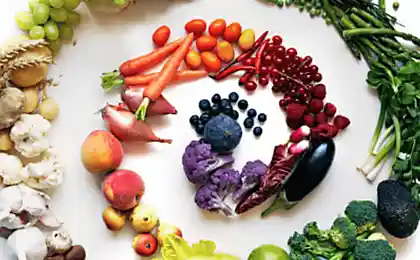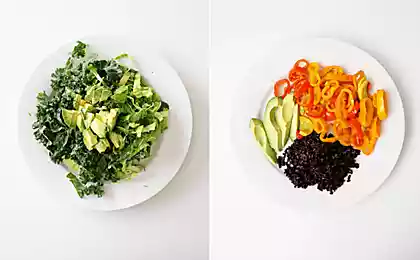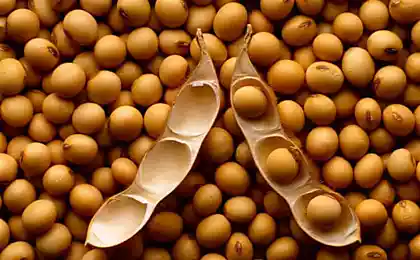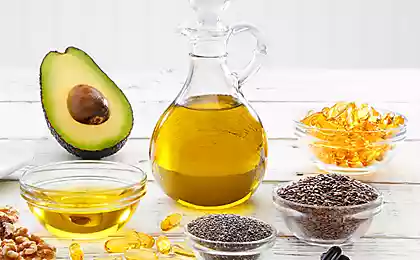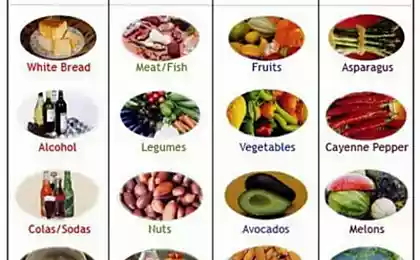718
Products
For thousands of years the human body to get used to a particular habitat, and it was his native cuisine is the most suitable to him. This means that we are born again in these climates where the winter from December until April first, then the light of these conditions and the need to live. Not without the joys of the exotic, of course, but do not take them as a basis for power.
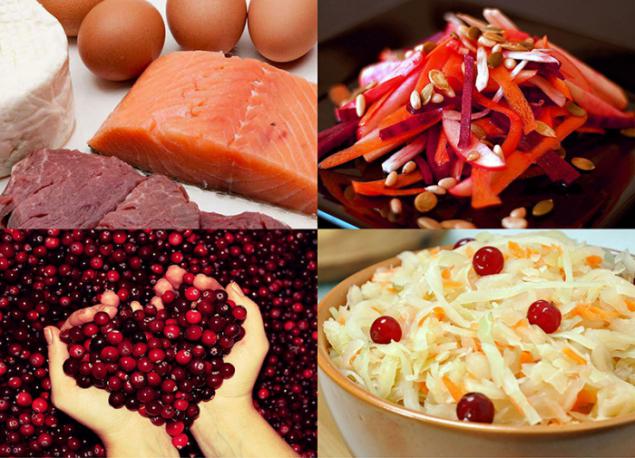
Sauerkraut.
It contains vitamins C, K, B vitamins The fermentation process also enriches cabbage lactic and acetic acids that promote digestion.
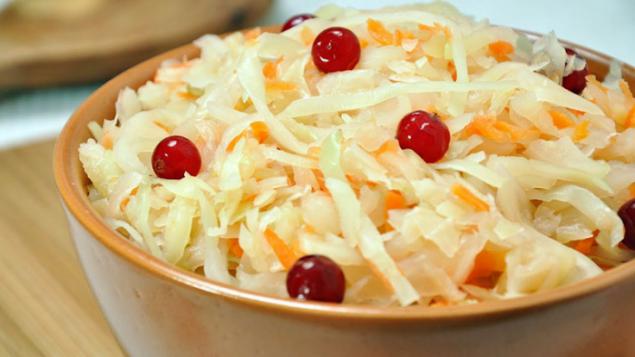
Foods rich in Vitamin D: eggs, fish, caviar, fish, liver, butter, milk.
These products enhance immunity, improve skin, eyesight and memory. Season dairy products and fish - always, but it was winter sea fish, such as energy becomes more valuable, and milk - more fat.
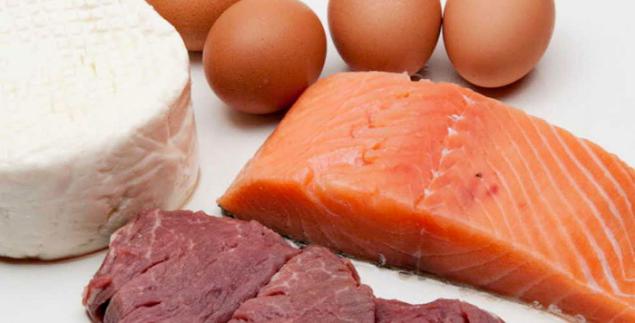
amorozhennye berries.
Preservation - an overabundance of past decades. Previously, people harvested for future use jerky, dried and freeze. Nutritionists recommend a return to these traditions, especially, for the simple reason that to prepare the berries in the freezer is much easier to digest than one jam. Frozen berries retain more nutrients than cooked.
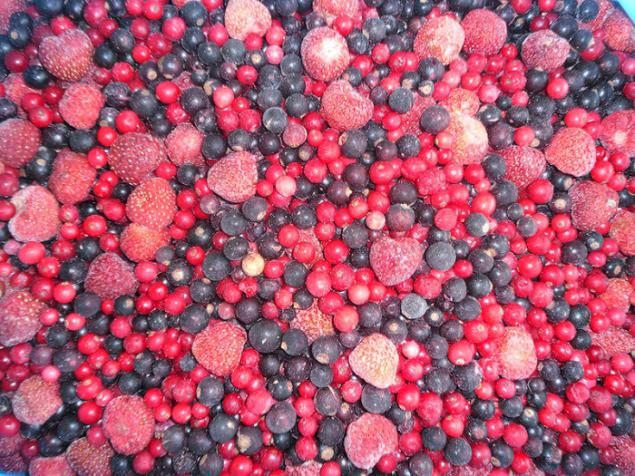
Cranberry.
Winter berry which, when properly stored in a cool, dry place more than a month can not lose their organoleptic qualities. Cranberry is rich in vitamins C and PP, and also has strong antioxidant properties.
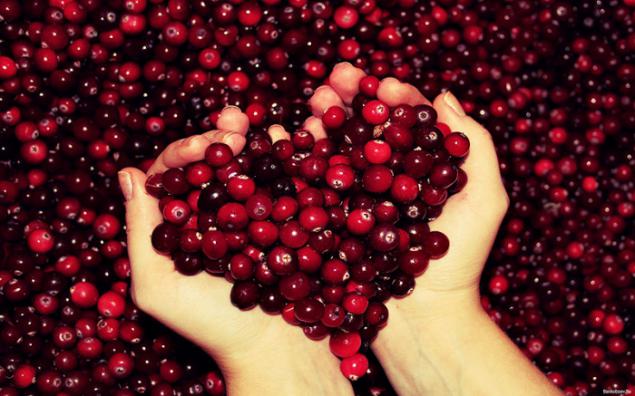
Greenery.
Dried leaves of cilantro, basil, parsley, dill, etc. almost as beneficial as fresh.
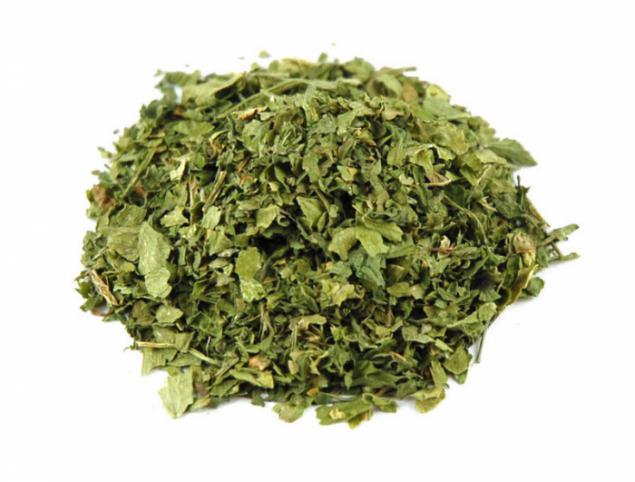
Fruits and Vegetables.
Winter varieties of apples, carrots, beets, onions, radishes, roots - is the foundation of a healthy winter food.
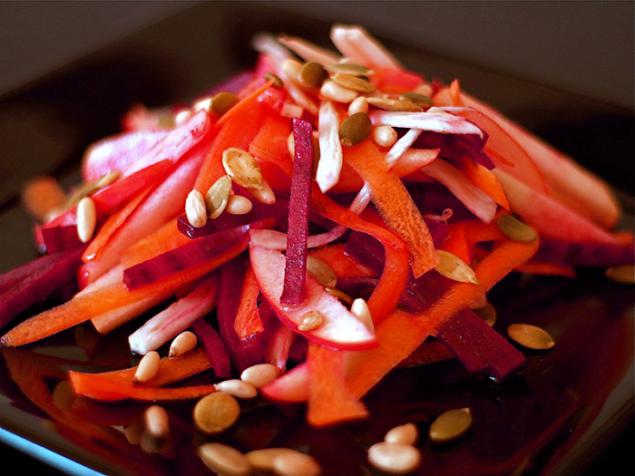
Exotic fruits.
We can not reject the exotic, though its excessive use can cause allergies. Kiwi, avocado, pineapple guava and all kinds of citrus fruits - excellent sources of vitamin C, vitamin chief against colds and old age.
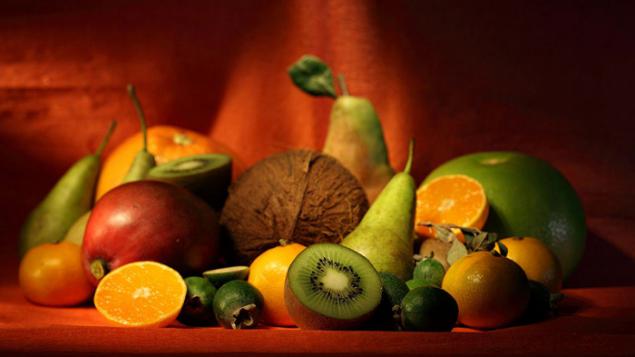
©

Sauerkraut.
It contains vitamins C, K, B vitamins The fermentation process also enriches cabbage lactic and acetic acids that promote digestion.

Foods rich in Vitamin D: eggs, fish, caviar, fish, liver, butter, milk.
These products enhance immunity, improve skin, eyesight and memory. Season dairy products and fish - always, but it was winter sea fish, such as energy becomes more valuable, and milk - more fat.

amorozhennye berries.
Preservation - an overabundance of past decades. Previously, people harvested for future use jerky, dried and freeze. Nutritionists recommend a return to these traditions, especially, for the simple reason that to prepare the berries in the freezer is much easier to digest than one jam. Frozen berries retain more nutrients than cooked.

Cranberry.
Winter berry which, when properly stored in a cool, dry place more than a month can not lose their organoleptic qualities. Cranberry is rich in vitamins C and PP, and also has strong antioxidant properties.

Greenery.
Dried leaves of cilantro, basil, parsley, dill, etc. almost as beneficial as fresh.

Fruits and Vegetables.
Winter varieties of apples, carrots, beets, onions, radishes, roots - is the foundation of a healthy winter food.

Exotic fruits.
We can not reject the exotic, though its excessive use can cause allergies. Kiwi, avocado, pineapple guava and all kinds of citrus fruits - excellent sources of vitamin C, vitamin chief against colds and old age.

©




